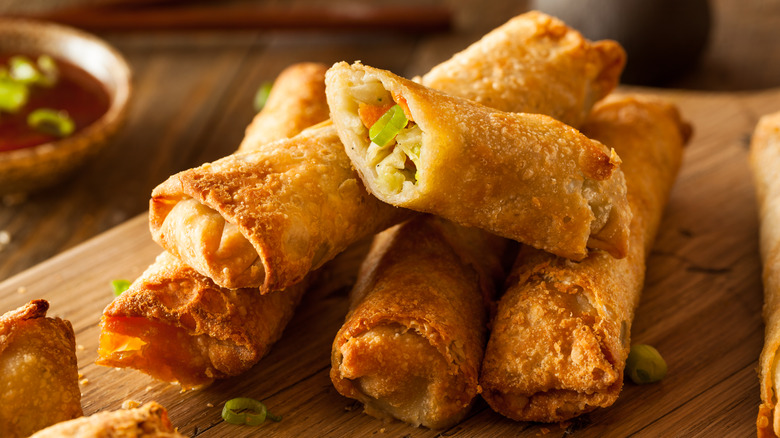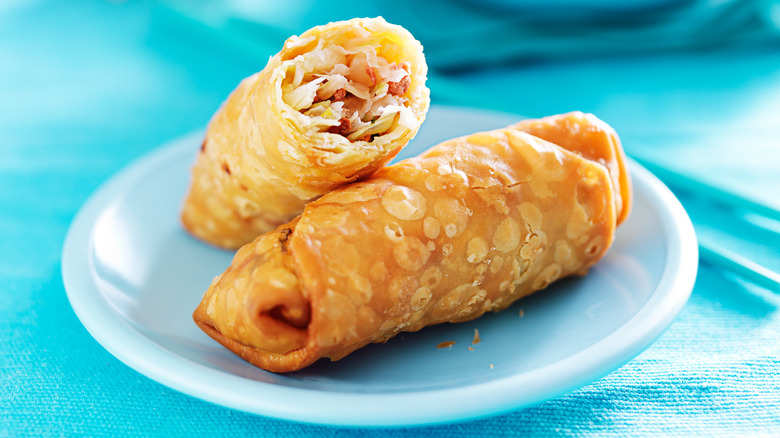Are There Actually Eggs In Egg Rolls?
Sweetbread. French fries. Ladyfingers. Welsh rabbit. All of these foods have one odd thing in common: they have quite misleading names, whether it comes to their place of origin, ingredients, or both. And dare we add one more to the list of deceptive food terms: egg rolls. That's right. The recipe for the mega-popular deep-fried appetizer that has become synonymous with Chinese takeout does not, indeed, call for eggs — or rarely does, for that matter.
The savory snack may have a medley of umami veggies, herbs, spices, and meats tightly wrapped in a crispy, crackly, golden-brown outer layer. You might even get soy sauce, hoisin sauce, sweet and sour sauce, or Chinese hot mustard to dip your egg rolls in for an amplified flavor bomb. But eggs often won't play a role.
So, what gives? While the answer isn't entirely clear, it seems the egg roll's name isn't purposefully deceptive. Let's look at how the illusory label might have come to be.
No, egg rolls do not always contain eggs
It is believed that the dough of egg rolls really used to be made with eggs. Additionally, an early-20th-century cookbook contained a recipe for an egg-wrapped meat and veggie dish whose name translated to "egg roll," though we don't know if there's a connection to the food people now associate with the term. While "egg" clearly still appears in the name of this handheld indulgence, the wrap used today is typically made from flour, water, and sometimes cornstarch.
The egg roll recipes that do call for the addition of eggs usually use them as a component of the filling mixture or as part of the wash before frying in oil. Our egg roll recipe, for instance, uses a mix of egg and water as the encasing's simple yet powerful adhesive. In other recipes, though, the wrapping can be sealed using a mixture of cornstarch and water instead of egg. It totally depends on the specific recipe being used. Egg or no egg, the few-bite delights are undoubtedly tasty.

